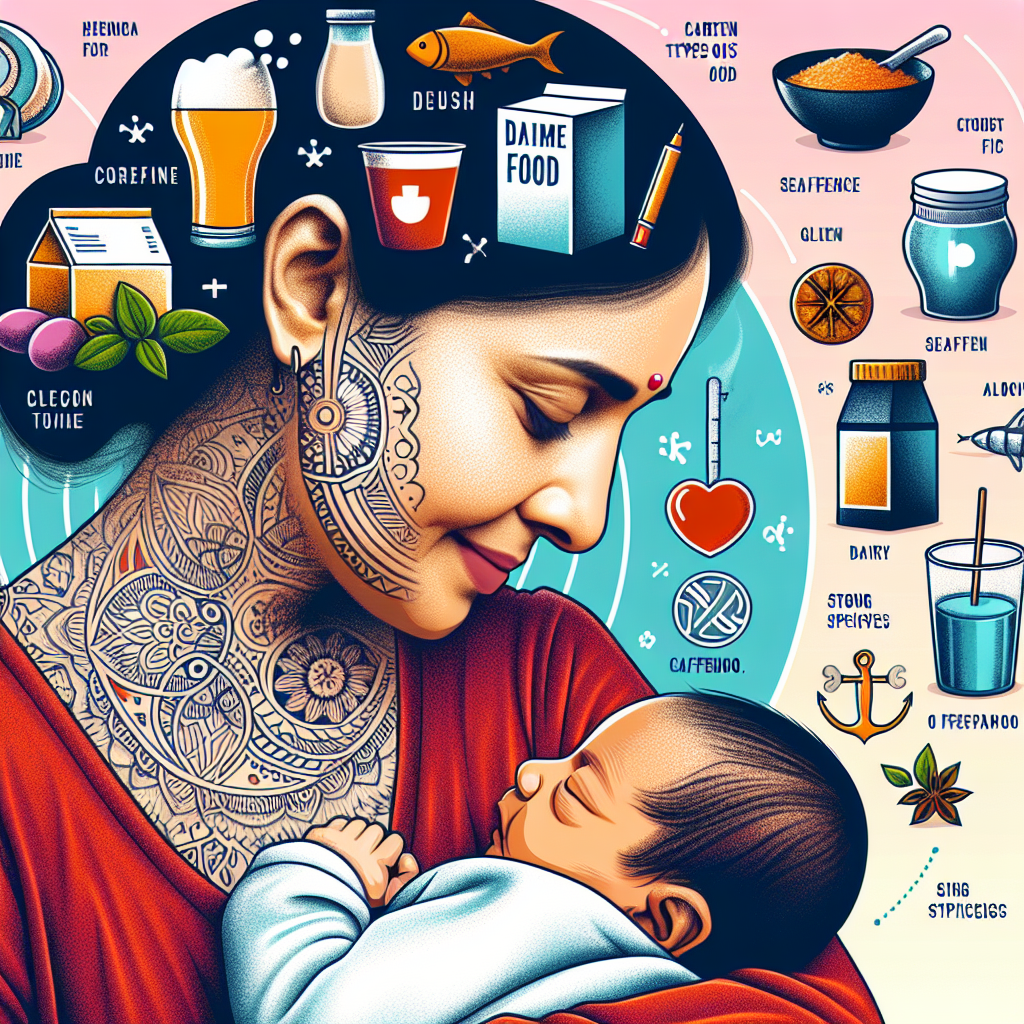Foods to Avoid While Breastfeeding: Moms' Guide
The period of breastfeeding is one of the most beautiful, but also challenging stages that a mother goes through. While nurturing and bonding with her newborn, it is essential that the mother is mindful of her own diet, which can influence her little one's health. This article aims to be a comprehensive guide to foods to avoid while breastfeeding and to give moms the information they need to navigate this unique time with confidence.
Potentially Allergenic Foods
One of the most important aspects that a nursing mother must consider is the allergenic potential of certain foods. It is well known that foods that the mother consumes can pass into breast milk and cause allergic reactions in the baby.
Foods with high allergenic potential include cow's milk, eggs, peanuts, tree nuts, soy, wheat and fish. The recommendation is not to completely eliminate them from the diet, but to introduce them gradually, carefully observing the baby's reactions.
Caffeine and Energy Drinks
The presence of caffeine in the diet of a nursing mother is a controversial topic. However, it is generally accepted that moderate consumption - the equivalent of 2-3 cups of coffee per day - should not be harmful. The problem occurs when caffeine is consumed in excess, which can cause irritability and sleep problems in the child.
Energy drinks are particularly problematic, not only because of their high caffeine content, but also other stimulants that can affect the health of both mother and child.
alcohol
Alcohol is a sensitive topic in breastfeeding. Although occasional consumption and small amounts may be acceptable, it is preferable to avoid it completely. Alcohol can affect the mother's ability to produce milk and can reach the baby, affecting its development. If the mother decides to drink alcohol, it is advisable to wait a few hours before breastfeeding.
Pisces with High Mercury
Fish is an excellent source of Omega-3 fatty acids beneficial for both mother and baby, but certain types of fish can contain high levels of mercury. According to the recommendations, fish such as shark, swordfish and king mackerel should be avoided. Safer options include salmon, sardines and trout.
Spicy or Intensely Flavored Foods
Foods with very strong tastes, such as garlic or onions, can change the taste of breast milk, which can cause the baby to be reluctant to breastfeed or even refuse to eat. It is recommended to moderate the consumption of these foods or observe the baby's reaction and adjust the diet accordingly.
Sugar and Too Salty Foods
Even though the desire for sweets may be greater during breastfeeding, it is advisable to limit sugar consumption to prevent such health problems for both mother and child, such as weight gain and tooth decay. At the same time, too salty foods can cause dehydration and should be consumed in moderation.
Specific Foods to Avoid
In addition to the general categories of foods to avoid, there are also some specific products that could be harmful while breastfeeding. These include artificial sweeteners, some herbs like sage or mint, which can reduce milk production, or trans fats in processed foods.
Conclusion
This guide to foods to avoid while breastfeeding helps you make informed nutritional choices for the good of you and your baby. It is essential to maintain a balanced diet and avoid or limit the consumption of foods and substances that may affect your child's health or well-being.
For more information and personalized recommendations, we recommend that you consult a nutritionist or pediatrician. We also invite you to explore our dedicated mums section of our store or subscribe to our newsletter to stay up to date with the latest tips and products for you and your little one. Stay healthy, stay happy!














































































































































